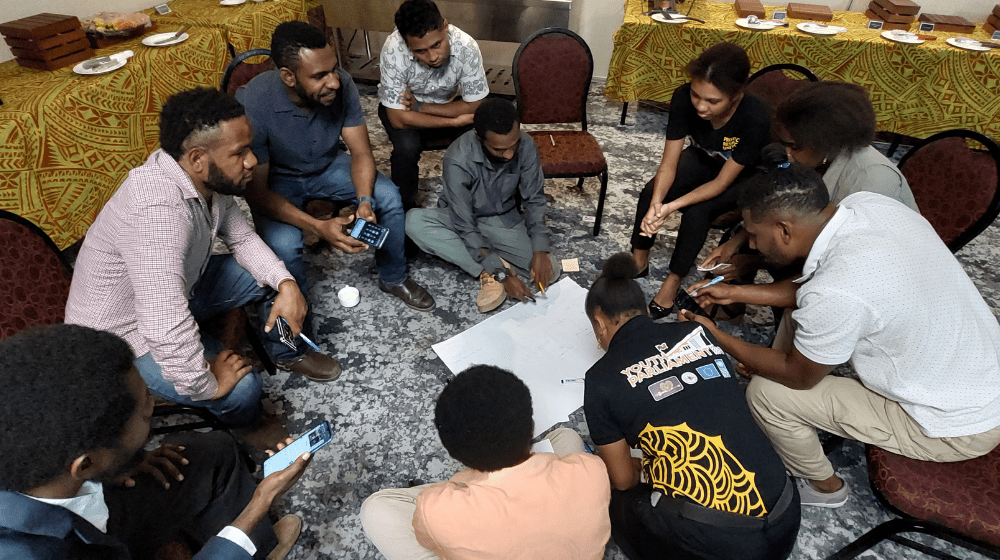In 2016, 56.3% of households in Papua New Guinea has a mobile phone. Now, that number is 71%. 66% of urban households, and 31% of rural households, have acces to internet. The rapid increase in the availability of digital technologies is leading young people to consider the impact of these technologies on their online safety and data privacy.
Importantly, there is an increasing need to educate young people about the risks in sharing personal information online and how to identify potential online scams. UNFPA and the National Statistical Office have launched a series of data literacy workshops with young people around Papua New Guinea to strengthen understandings of data collection, processing, and visualisation. One session is dedicated to the issue of data privacy.
Participants from the first of the workshops in Port Moresby shared how they have a renewed appreciation for the importance of data privacy.
“The data privacy session really caught my attention at the workshop,” reflected Chie-Joy Soli. “It showed how vital it is to protect our personal info in the digital world.”
Chie-Joy joined the workshop from the Centre for Future Nau shared how the session has made her more cautious online. “We talked about how our data can be very valuable to companies and to hackers. The session explained data breaches and privacy laws like GDPR (General Data Protection Regulation). They used real-life stories and made complicated ideas easy to get.”
“I loved this session and can't wait for more like it!”
The Checkmate Foundation’s Reminah Vincent shared how she would be able to implement greater data protections in her work.
“As someone who works with and would like to fully engage with people, I appreciate that data privacy is of paramount importance. I need to make sure my data, as well as that of those I engage with, is protected.”
Understanding how personal data can be exploited by companies and criminal operations online is important for recognising suspicious links and interactions. As scams become more sophisticated, improved digital and data literacy becomes more important.
Technology-Facilitated Gender-Based Violence Increasing as More Young People have Access to Digital Platforms
In addition to potentially falling victim to online scams, young people are increasingly vulnerable to technology-facilitated gender-based violence.
Technology-facilitated gender-based violence takes many forms, including sextortion (blackmail by threatening to publish sexual information, photos or videos); image-based abuse (sharing intimate photos without consent); doxxing (publishing private personal information); cyberbullying; online gender and sexual harassment; cyberstalking; online grooming for sexual assault; hacking; hate speech; online impersonation; and using technology to locate survivors of abuse in order to inflict further violence, among many others.
It carries significant health, safety, political and economic consequences for women and girls, for their families and communities, and for society as a whole. As digital platforms become more popular, and with limited information about how to safely navigate online spaces and the legal recourse available for individuals experiencing technology-facilitated GBV, the incidence of this form of GBV can continue to grow.
Following the workshop in Port Moresby, UNFPA and NSO will be conducting further data literacy activities with young people, including a second workshop in Lae, Morobe Province, in September.
UNFPA and Population Data
UNFPA works in partnership with the National Statistical Office to deliver data literacy training for planners, youth, and other stakeholders across Papua New Guinea. This initiative aims to strengthen data appreciation in order to improve utilisation of up-to-date population data. This project is funded by the Australian Government.


